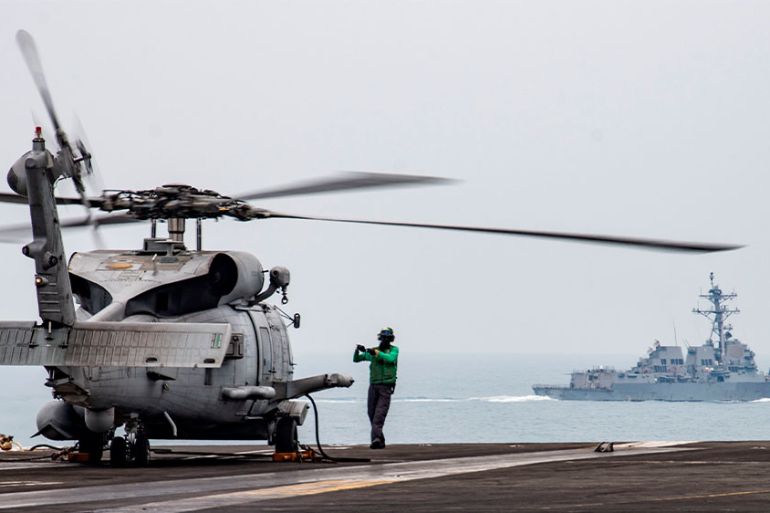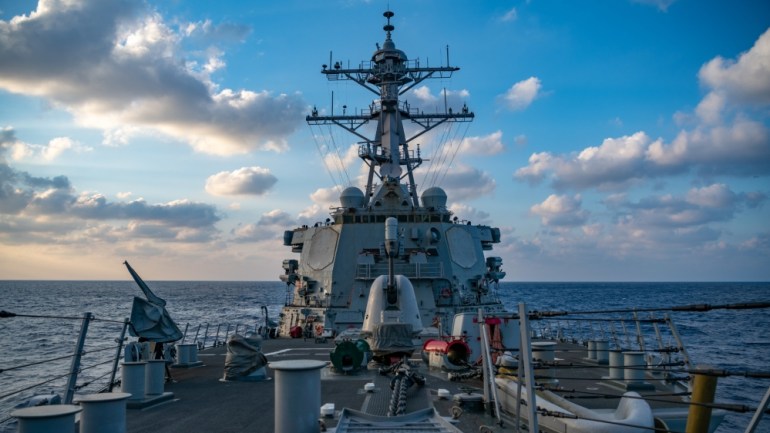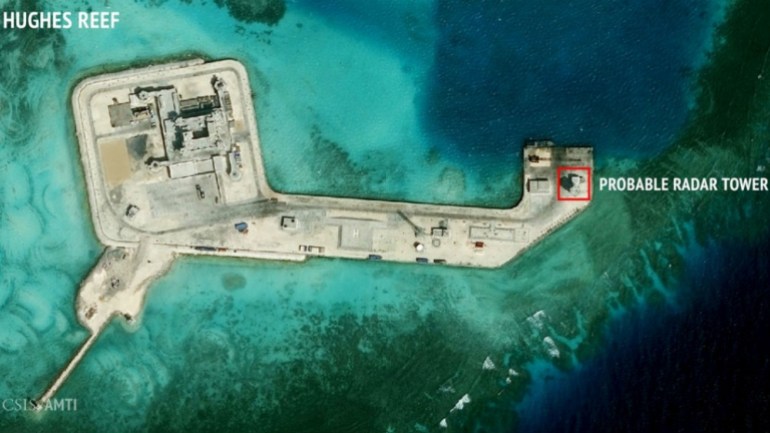China accuses ‘dangerous’ US of ‘creating chaos’ in Asia
Embassy in Manila condemns US after visiting White House envoy pledges support to the Philippines over maritime claims.

China has accused the United States of trying to “create chaos” in the Asia-Pacific, a day after US National Security Advisor Robert O’Brien, on a visit to the Philippines, backed countries in maritime disputes with China and accused Beijing of using military pressure to further its own interests.
During his trip to Manila, O’Brien told the Philippines and Vietnam, both countries in disputes with Beijing cover the South China Sea: “We’ve got your back”. He also reiterated the US commitment to self-ruled Taiwan.
Keep reading
list of 4 itemsPompeo urges ASEAN to ditch Chinese firms in South China Sea row
US says China’s South China Sea missile launches threat to peace
Australia rejects Beijing’s South China Sea claims
China said his remarks were “unreasonable” and exaggerated regional tensions.
“We firmly oppose these remarks which are full of Cold War mentality and wantonly incite confrontation,” the Chinese Embassy in Manila said in a statement posted on its website. “It shows that his visit to this region is not to promote regional peace and stability, but to create chaos in the region in order to seek selfish interests of the US.”

China claims almost the entire South China Sea under its so-called nine-dash line and over the past few years has built military installations on several disputed reefs and outcrops despite an international court ruling that found the line – which overlaps with claims by the Philippines, Vietnam, Malaysia and Indonesia – illegal.
The Philippines took its case to The Hague after a two-month standoff with Chinese fishing vessels over Scarborough Shoal in 2014 and the court ruled two years later that, under the UN Convention on the Law of the Sea, the Philippines had exclusive rights to the resources within 370.4km (200 nautical miles) of its coast.
The ruling has not deterred China, which has continued to build bases in the sea, while the US has repeatedly sent warships through the area to highlight freedom of navigation in one of the world’s busiest trading routes.
‘Only one China’
The Chinese embassy accused the US of “provocative” behaviour.
“Facts have proved that the US is the biggest driver of the militarization of the SCS and the most dangerous external factor endangering the peace and stability of the SCS,” it said in the statement in reference to the waterway.

Samuel Hardgrove/US Navy via AFP]

China also hit out at O’Brien’s comments on Taiwan, which Beijing claims as its own. O’Brien warned China it would face a “backlash” if it attempted to use military force to coerce the island.
The statement said Taiwan was an “internal” affair for China.
“There is only one China in the world,” it said. “Both Taiwan and Hong Kong are inalienable parts of China. This is an objective fact and a basic norm governing international relations.”
Relations between China and the US have deteriorated since Donald Trump was elected president in 2016, with the two sides at odds over issues from democracy and human rights to technology and trade.
President-elect Joe Biden is expected to take a more diplomatic approach to China, but a more assertive approach to Beijing has broad bipartisan support in Washington, DC.